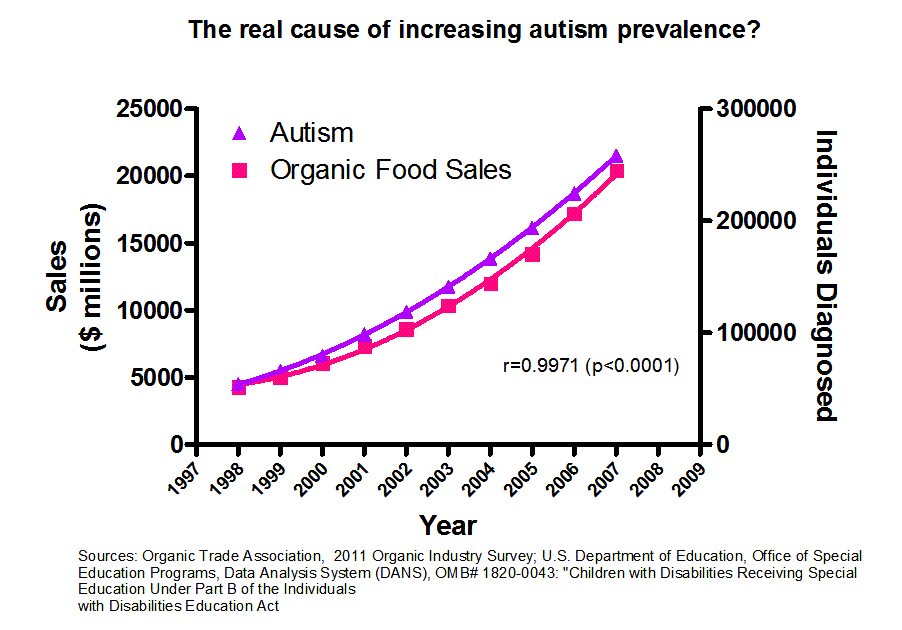Does it bother me that because I’m a sister of an Autistic person people are more likely to think I might be autistic, too?
I told her, no, it didn’t bother me, and we carried on with our conversation. But something about the question stuck with me and I kept thinking about it well into the night. When something sticks with me like that, that’s when I know it’s post-worthy, so I got my friend’s generous permission to share her question and my full response here.
You see, I realized that had you asked me this very same question two or three years ago, you would have received a very different answer.
Back then I would have told you that, you know, I wouldn’t really mind it so much if people thought I had Asperger’s. But, you know, Asperger’s and autism are really different, I would have told you. I would have assured you of the intelligence differences between the two groups, the communication differences, told you that people with Asperger’s and autistic people are as different as night and day. So there’s no way anyone could ever think that I was actually autistic, I would have said.
I would have been very, very wrong on a lot of counts. For one thing, the intelligence gap between Asperger’s and autism is over-hyped. There are no intelligence requirements to be diagnosed with one as opposed to the other, people with the diagnosis of classic autism can be as smart as or smarter than people with the previous diagnosis of Asperger’s, even by traditional IQ tests. And if though people with classic autism diagnoses do often test lower than people with Asperger’s diagnoses on traditional IQ tests, on other intelligence tests more suited to people on the spectrum that gap disappears.
At the time I would also have told you that people with Asperger’s are more ‘high functioning’ than people with classic autism. I would have also been wrong on that count (and wrong to use functioning labels in the first place). It turns out that people with those two once-separate diagnoses aren’t so different after all. In fact, the use of the two labels and false portrayals of how different they are (they aren’t) has led to artificial divides within the autism spectrum community. It’s also encouraged the “not like my child” attitude many non-autistic people have professed when reading the words of adults on the spectrum. “Oh, he has Asperger’s, what he’s saying doesn’t apply to my classically autistic child.” As you can see, the divides and misconceptions this creates are toxic. (For more on that, check out this post.)
So, now that we’ve established what kind of answer I would have given two years ago, and how very wrong it was, how would I respond now if someone asked me if I mind people thinking I’m autistic? The short answer, which I gave, is that I don’t mind. But here’s the longer answer.
I’d probably take it as a compliment. I think the reason people take the idea of being autistic as an insult is that, for one thing, they don’t know much about autism, and for another, they only know the deficits associated with autism. Me, though, I see strengths. Many of my favorite people to talk to are consistently on the autism spectrum, and that’s for a reason. For one thing, they know a whole lot about their areas of interest, and it is ridiculously fun to be around someone who can speak with passion and knowledge about a subject. It’s hard for me to hang around with friends on the spectrum and not learn something, and I love that. With my friends on the spectrum we can skip the gossip and head straight into the parts of conversation I most enjoy.
Things are also generally more straightforward. We’re more honest with each other, I think. In the absence of being able to read expressions well, you have to communicate more openly about your feelings, and I like that. I don’t want to perpetuate the myth that autistic people can’t lie about things, because that’s just not true, but with my friends on the spectrum we kind of skip the silly societal rules and communicate more directly, which is nice. Yeah, that’s a lot of what people see as a deficit, ‘poor social skills’, but it can have positives, too, and I generally far prefer it.
People I know who are on the spectrum tend to be people that I admire, so being compared with them? Yeah, that’s a compliment.
What’s more, if someone thought I was on the spectrum, I would no longer confidently reassure them that they’re wrong to think that. I’d probably tell them that I personally thought I was broader autism phenotype (BAP) with an anxiety disorder, rather than being diagnosably autistic, but that I’ve had enough autistic friends mention that they thought I was on the spectrum to admit that they may well be right, which is why I generally just give a lower bar for my neurology, not an upper. (I say I’m at least BAP.)
I think the absolute only thing I’d regret about someone thinking I was autistic would be the stigma and resulting discrimination that come along with that. (Which I’ve already experienced some of when a mother wouldn’t let me care for her child because she thought I was autistic) But that’s not me personally regretting being perceived as autistic, just regretting what people think that being autistic means.
So there it is, my answer. It’s a fair bit longer than I thought it was, but I’m satisfied with it. And I think it just goes to show how far a little bit of autism understanding can take you. I’m glad my friend asked the question.
Have any questions of your own for me on what it’s like to be a sibling? Leave them in the comments!
-Creigh
Picture reads: Does it bother me that because I'm a sister of an Autistic person people are more likely to think I might be autistic, too?






 RSS Feed
RSS Feed
